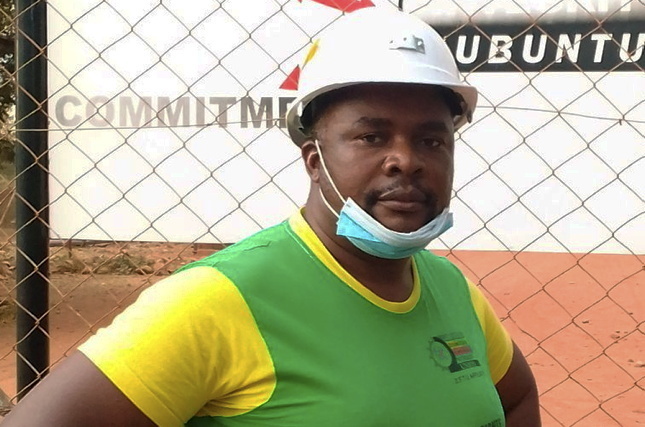By Rudairo Mapuranga
Speaking at the 2nd Congress of the Union held at Khumalo Hotel on Saturday, ZDAMWU General Secretary Justice Chinhema underscored the critical need for enhanced protections in the mining sector, particularly in the face of job insecurity, unsafe working conditions, and ongoing exploitation of workers.
In his address, Chinhema painted a sobering picture of the current state of the mining industry, where workers continue to face significant risks and uncertainties.
He highlighted how economic instability in Zimbabwe has further exacerbated the hardships endured by mine workers, who are already grappling with precarious employment and hazardous work environments.
“The reality for many mine workers in Zimbabwe is one of constant fear and uncertainty. Job security is a luxury that most cannot afford, and the conditions under which they work are often dangerous and unacceptable,” Chinhema stated.
His remarks come at a time when the mining sector, a key pillar of Zimbabwe’s economy, is under intense scrutiny for its labour practices.
Chinhema’s speech served as a rallying cry for the union to intensify its efforts in safeguarding workers’ rights. He called for a renewed focus on improving safety standards across all mining operations in the country.
“We cannot stand by while our members continue to work in conditions that put their lives at risk. It is our duty as a union to ensure that every mine worker is able to return home safely at the end of each day,” he emphasized.
The issue of job insecurity was another major point of concern highlighted by the ZDAMWU General Secretary. According to Chinhema, the lack of stable employment in the mining sector has left many workers vulnerable to exploitation. He pointed to the frequent layoffs and contract terminations as evidence of a deeply flawed system that prioritizes profits over people.
“Job insecurity is a weapon used by employers to keep workers in a state of constant anxiety. This makes them more susceptible to exploitation, as they fear losing the little income they have. This must change,” Chinhema argued.
He stressed the need for the union to negotiate more robust employment contracts that protect workers from arbitrary dismissals and ensure that their rights are respected.
Chinhema also addressed the broader economic challenges that have further compounded the difficulties faced by mine workers. He noted that ongoing currency instability in Zimbabwe has led to severe economic hardships for many, as wages have been eroded by inflation and the fluctuating value of the Zimbabwean dollar. This, he said, has left workers struggling to make ends meet, with many unable to afford basic necessities.
“The economic environment in Zimbabwe has placed an unbearable burden on our members. They are paid in a currency that loses value every day, while the cost of living continues to rise. We must fight for better wages and fair compensation that reflects the true cost of living,” Chinhema asserted.
Chinhema reiterated the union’s commitment to standing up for mine workers and ensuring that their voices are heard. He urged all members to remain united in their struggle for justice and dignity in the workplace.
“The challenges we face are great, but our resolve is greater. Together, we can build a future where every mine worker is treated with the respect and fairness they deserve,” he concluded.




